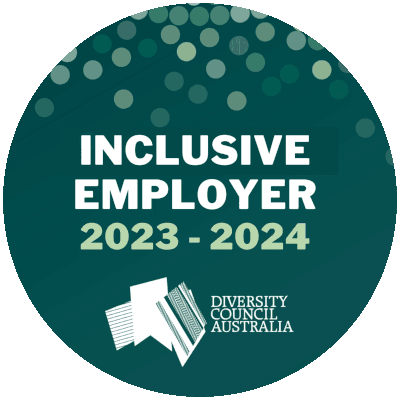A couple of weeks ago we completed some male family violence intervention training in Dubbo. We were in a room full of frontline workers, and while the room was quiet at first, as the week went on the group slowly began to share their stories of working with women and children who have experienced violence, and the men who remain invisible in their work. Having heard their stories prepares us, in a small way, for work in 2018.
On our flight to Broken Hill from Dubbo, we looked out the window on the flight and saw the sun bathing the flatlands below us in searing light and heat. So much land scorched to the colour of red, with few roads and fewer townships. We landed in Broken Hill and immediately embarked on a two hour drive to Wilcannia, home to a mostly Aboriginal community of about 500 people.
Only a few years ago air conditioning was installed in social housing, in an area where for five months of the year the average day reaches over 31 degrees. The river they once relied on is now bone dry. Wilcannia once had a thriving inland port on the famous Darling River and it had been a place of cultural significance for local Aboriginal people for tens of thousands of years. Heartbreakingly, now fishing is a sad affair as the river seems it has been sucked of its life force. A worker succinctly sums up the challenges facing residents in one example, “at the local grocery supply store, the monopoly held by the owner/operator, the expense of stocking the store combined with the level of demand and the limited nature of the goods means that there is a premium on everyday necessities e.g. a bag of flour is $8.00! Residents only other option is to travel into Broken Hill, with a one way bus ticket costing $7.50, making this trip expensive and demanding for a mother with young children she can’t leave at home.”
Broken Hill appears to fare better, but even with strong connections and programs, working with men is still a new frontier that few have braved.
We fly back to Dubbo and continue on to Coonamble to Walgett, Lightning Ridge and Brewarrina. Wherever we go, we hear stories that are unique to each town, yet all seem to echo one another. Unemployment has a stranglehold on many in the community, placing immeasurable strain on families and adding to the inner turmoil of many men. We see firsthand the effect that colonisation has had on Aboriginal communities, families and men, and the seemingly endless cycle of intergenerational trauma that shapes so many intimate and family relationships. The intergenerational trauma and cultural harm that is at the heart of family violence in Aboriginal communities speaks to the need for deep and real consultation and culturally based healing work to be at the front end of any men’s behaviour change work. Identifying local Aboriginal leaders and advocates, training these people to run programs in their communities is what they are asking for. The sheer distance between towns and populated areas determines the kind and amount of service they receive, and the expense of delivering to these isolated pockets often means that they receive ad hoc services from what is locally referred to as ‘interloper’ services – “they come in their new 4 wheel drives and flash laptops and they go”. Nothing they get is ever close to enough. More and more, we learn about the men who want help and support, and have nowhere to go.
However, there is an indomitable and hardy will in the far west that empowers them to continue working. Local services show remarkable resourcefulness in the way they stretch their resources to help families. Their willingness to cooperate with other agencies and pool together their expertise sets an example for metropolitan and regionally based services. Everyone we meet is incredibly generous with us. They share their struggles and their concerns in a candid and heartfelt way that stays with us long after we leave the far west.
Towards the end of our second week, Lizette’s throat and voice grows sore and raspy. She has talked a lot about working with men who use violence, accountability, respect and the ultimate priority of keeping women and children safe. More than that, she has listened to each person who has come to us with their thoughts and input.
It becomes abundantly clear that working with men who use violence is an essential part of protecting women and children. We endeavour to advocate for men’s behaviour change work across NSW, and our trip reinforces that men need wrap-a-round support to encourage them to be accountable for their choices and actions, and to end family violence.















